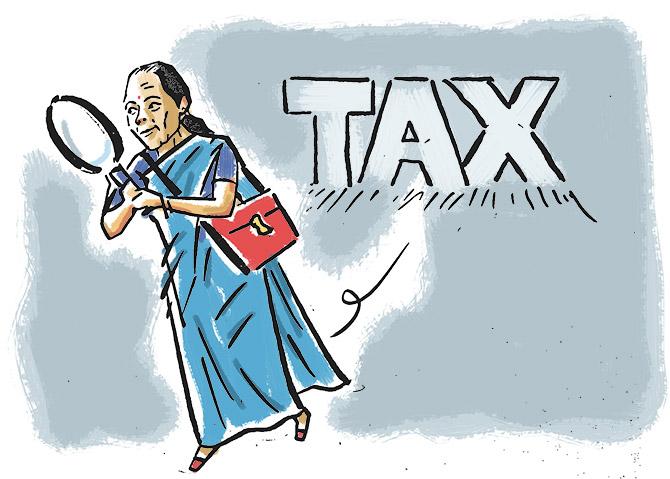India is often viewed as an aggressive tax jurisdiction by domestic and overseas taxpayers, and making the charter as part of the Act may help restore confidence among taxpayers.

The Budget has proposed the insertion of a new Section 119A in the Income Tax Act to empower the Central Board of Direct Taxes (CBDT) to adopt and declare a taxpayer’s charter and issue orders, and directions or guidelines to the I-T authorities.
If the proposal is accepted, this amendment will take effect from April 1.
India is often viewed as an aggressive tax jurisdiction by domestic and overseas taxpayers, and making the charter as part of the Act may help restore confidence among taxpayers.
Market players, however, believe that its efficacy will depend on the way it is drafted and executed.
According to Mukesh Butani, managing partner at BMR Legal, a taxpayer charter legislated in the law has to go far beyond what is currently put up on the income tax website as citizen’s charter - which lays down general principles for transparency and service standards but lacks teeth.
The new charter should enjoin on lawmakers a sense of accountability with regard to taxpayers, says Butani, incorporating privacy of tax filing information, the confidentiality of business data, and a grievance mechanism, outside of the formal dispute process.
“India has a rich jurisprudence laid down by the courts as to how officials are expected to act judiciously.
"If such rights are breached, a sense of accountability needs to be instilled in officials. This can be achieved through the charter,” says Butani.
Suresh Surana, founder, RSM India, points out that the charter should provide uniformity in the application without leaving it to administrative discretion and legal remedy in case of non-adherence.
Arijit Chakravarty, senior principal-direct tax litigation, Advaita Legal, says while a charter may give rights to the taxpayer, what is needed is a change in mindset.
“Our experience, so far, is the opposite where taxpayers are looked upon with suspicion, issues never reach finality, an effective redressal system is lacking, and most importantly, sense of accountability for one’s actions is lacking,” he adds.
More than 40 countries have similar charters in place, experts reckon.
In countries like Brazil and Italy, for instance, the charter is part of the statute, while in countries, such as Australia and Canada, the charter does not have the protection of the law.
Girish Vanvari, founder of Transaction Square, believes that the charter’s efficacy will depend on how it can influence the administrative portions of the Act and how it balances aggressive tax planning by taxpayers with the tax aggression by revenue authorities.
“It will also be interesting to see how this charter works within the dispute machinery already prevailing in the Act, such as CITs, appeals, courts, and AARs,” says Vanvari.
Experts believe several issues need to be explicitly addressed in the charter.
For instance, there is a need for a prior notice listing specific issues in case of summons or tax proceedings, except in the case of search or duly authorised investigations.
Surana feels taxpayers should have the right to have legal or tax advisor’s presence during summons, search or survey proceedings, and during the recording of statements beyond office hours.
They should also have the right to privacy and the right to take breaks for medicine, prayers, sleep, and contingencies during proceedings extending beyond a certain duration.
“Time limits should be set to dispose of appeals. For example, if I file an appeal before CIT today, if the hearing does not take place for two, three or five years down the line, it is an issue,” says Ameet Patel, partner, Manohar Chowdhry & Associates.
Abhay Sharma, partner at Shardul Amarchand Mangaldas, wants the charter to lay down a definite timeframe for disbursal of tax certificates and the imposition of penalty as a routine should be stopped, except when there is tax evasion by taxpayers.
“The refusal to apply the principles laid out in a superior court judgment to a particular taxpayer’s case based on minor factual differences should be discouraged or stopped.
"Where two views are possible, the principle of adopting a view that is more beneficial to the taxpayer has to be adopted by the authorities in letter and spirit,” he says.
According to Sudhir Kapadia, national tax leader at EY India, a charter is necessary to be applied in the context of facts and circumstances but it will be difficult to bring an omnibus provision in the law addressing all possible practical situations.
“The main purpose of such a charter is to enable taxpayers to point out the guidelines in specific cases of harassment to senior leadership in tax administration and also to appellate authorities and courts when matters reach that level,” he says.
Vanvari feels that the timing of the charter’s implementation will be crucial considering the current flux in the taxation environment both domestically and internationally.
“India is going through a transitionary phase with digitisation and e-assessments.
"Further, there are continuously checks and balances now being introduced in the Act in the form of GAAR (General Anti-Avoidance Rule), demonetisation and digital enablement to curb blatant tax evasion,” he said, adding that there is need for adequate public debate before the enactment of a charter.











